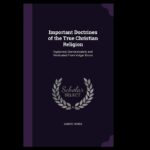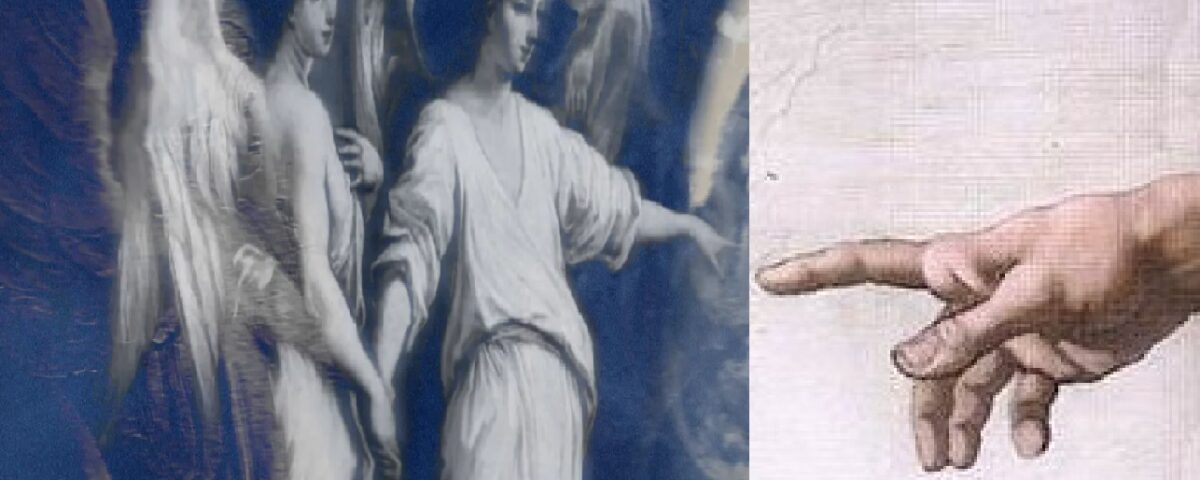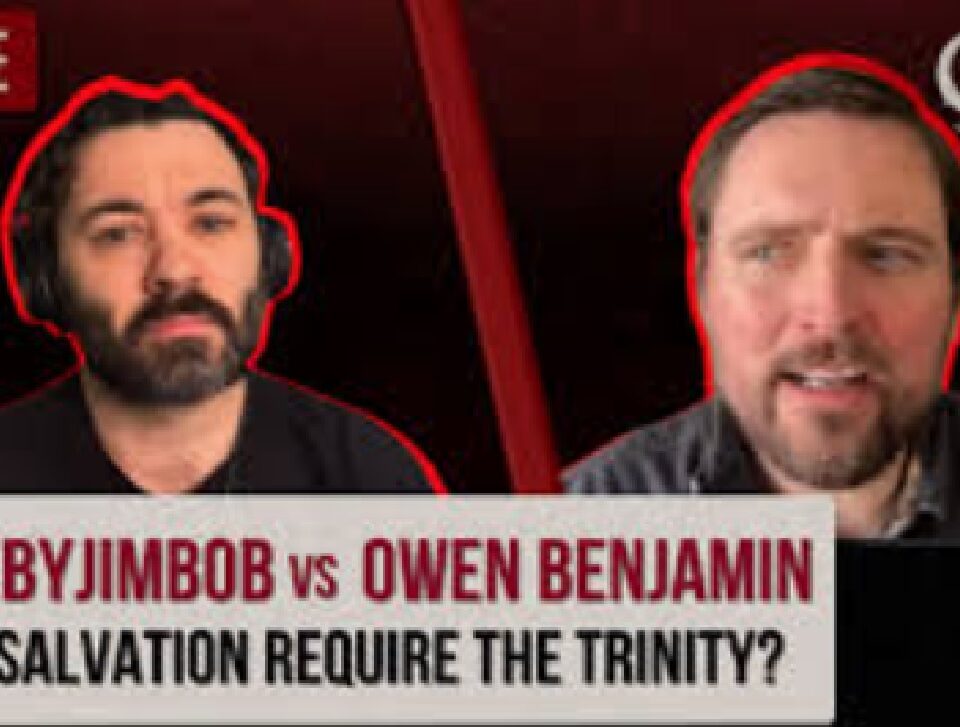
Did Moses meet Christ?
April 11, 2025
Samuel Noble Important unitary doctrines
April 11, 2025Church Fathers on created angels

Hebrew biblical tradition understands angels, aka spirits as God’s creatures. The Jewish Encyclopedia observes that rabbinic teaching “emphatically declares [angels] to have been created by God” (even debating on which Creation Day). The early so-called “Church Fathers” concurred, as do modern-day Trinitarians, angels “were created when time began and not from eternity,” produced “by God’s almighty power, out of nothing” (quoting the Fourth Lateran Council).
Irenaeus of Lyons (c. 130–202 AD) “For the angels did not make themselves—for every creature is subject to change, even the angels themselves—but He who is above all created them, the unchangeable God.”
Source: Irenaeus, Against Heresies (Adversus Haereses), Book II, Chapter 2, Section 3. This can be read in The Ante-Nicene Fathers, Volume 1, edited by Alexander Roberts and James Donaldson (1885), p. 361, available online at NewAdvent.org.
Context: Irenaeus argues against Gnostic ideas that angels or other beings could be self-existent or creators. He asserts that angels, as creatures, are mutable and dependent on God, who alone is uncreated and immutable.
Athanasius of Alexandria (c. 296–373 AD) “For the angels were created by Him who is above all creation, and they are not eternal, but came into being by the will of the Word.”
Source: Athanasius, Discourse Against the Arians (Oratio Contra Arianos), Discourse I, Chapter 14. This is available in Nicene and Post-Nicene Fathers, Series II, Volume 4, edited by Philip Schaff and Henry Wace (1892), p. 319, accessible at NewAdvent.org.
Context: Athanasius, a key defender of Trinitarian orthodoxy, distinguishes the eternal nature of the Son (the Word) from the created nature of angels. He stresses that angels owe their existence to the creative act of God through the Word.
Gregory of Nazianzus (329–390 AD) “He [God] brought into being the intelligible world first, that is, the angelic and heavenly powers, creatures of a nature akin to His own, pure spirits without bodies.”
Source: Gregory of Nazianzus, Oration 38: On the Theophany, or Birthday of Christ, Section 9. This can be found in Nicene and Post-Nicene Fathers, Series II, Volume 7, edited by Philip Schaff and Henry Wace (1894), p. 347, available at NewAdvent.org.
Context: Gregory describes the angels as part of the “intelligible world,” created by God before the material world. He explicitly identifies them as creatures, emphasizing their spiritual nature while affirming their origin in God’s creative act.
Hilary of Poitiers (c. 310–367)
In his treatise *On the Trinity*, Hilary of Poitiers clearly teaches that angels are created ex nihilo—that is, from nothing. He writes: “He is Himself the Maker and Creator of the angels: for He brought them out of nothing into being… Through the Word, therefore, all the angels were created” (Hilary of Poitiers, De Trinitate, 2.4).
Hilary emphasizes both the Creator role of the Father and the instrumental role of the Word (Logos) in the creation of angels. This passage firmly situates angels within the created order, denying them any form of divine origin or eternality.
Basil the Great (329–379 AD) “For He spoke, and they were made; He commanded, and they were created—angels, archangels, and all the heavenly host.”
Source: Basil, Homilies on the Hexaemeron, Homily 1, Section 5. This is available in Nicene and Post-Nicene Fathers, Series II, Volume 8, edited by Philip Schaff and Henry Wace (1895), p. 55, accessible at NewAdvent.org.
Context: Basil interprets Psalm 148:5 to include angels among the created order, affirming that they came into existence by God’s command. This reflects his broader teaching that all things, visible and invisible, are contingent upon God’s will.
John Chrysostom (c. 347–407 AD) “The angels are creatures, not creators; they were brought into being by the command of God, who alone is uncreated.”
Source: John Chrysostom, Homilies on Genesis, Homily 2, Section 3. This can be read in Nicene and Post-Nicene Fathers, Series I, Volume 10, edited by Philip Schaff (1888), p. 71, available at NewAdvent.org.
Context: Chrysostom contrasts the uncreated nature of God with the created status of angels, emphasizing that their existence is a result of God’s sovereign act. This aligns with his exegetical focus on Scripture’s portrayal of God as the sole Creator.
Augustine of Hippo (354–430)
Augustine consistently upholds the belief that angels are created beings in his biblical commentaries and sermons. In his *Homilies on the Gospel of John*, while expounding on John 1:1, Augustine addresses the created status of all spiritual beings: “Dost thou inquire concerning… angels, archangels, thrones, dominions, powers, principalities? These also were made. For when the Psalm enumerated all these things, it finished thus: ‘He spoke, and they were made; He commanded, and they were created’” (Augustine, Homilies on John, Homily 21; cf. Psalm 148:5). By invoking the Psalms, Augustine reinforces the idea that even the highest beings in the spiritual realm were made by the command of God.
Thomas Aquinas (1225–1274 AD) “Angels are creatures, for they have a beginning of existence, and whatever has a beginning is created; therefore, they are not eternal but made by God.”
Source: Thomas Aquinas, Summa Theologiae, Prima Pars, Question 61, Article 1. This is available in the English translation by the Fathers of the English Dominican Province (1920), p. 309, accessible at NewAdvent.org.
Context: While not an early Church Father, Aquinas synthesizes patristic teaching, particularly from Augustine and Dionysius the Areopagite, to affirm that angels are created beings. He argues philosophically and theologically that only God is eternal and uncaused.
“He [God] created the angels, endowing them with good will, that is, with pure love by which they adhere to Him, giving them existence and adorning them with grace at one and the same time.”
Augustine, De Catechizandis Rudibus (On the Catechizing of the Uninstructed), Chapter 18, as referenced in the Catechism of the Council of Trent (Roman Catechism), Part I, Article 1. This can be found in English translations of the Roman Catechism, such as the 1985 edition by St. Paul Editions, p. 20.

